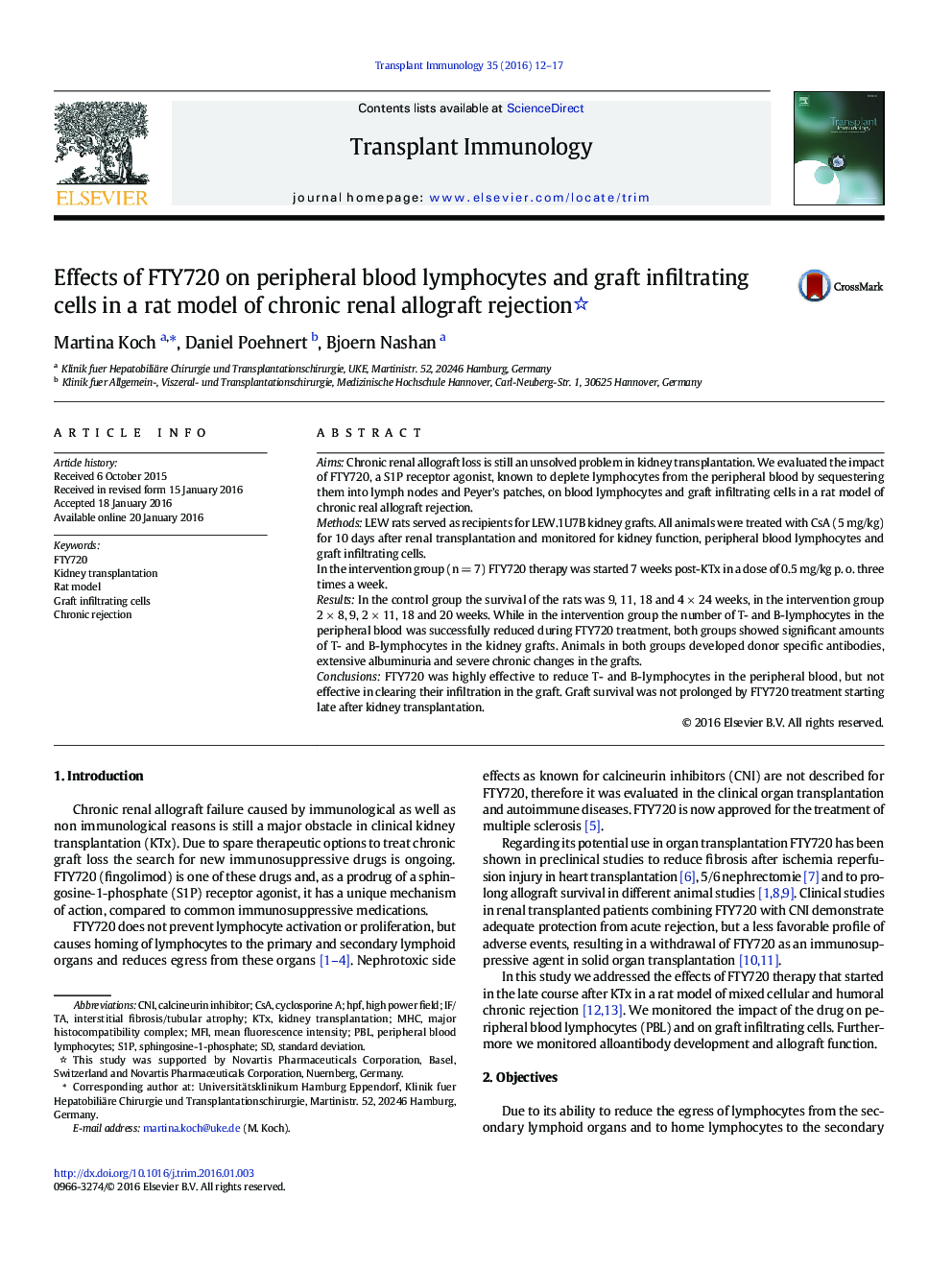| Article ID | Journal | Published Year | Pages | File Type |
|---|---|---|---|---|
| 3392011 | Transplant Immunology | 2016 | 6 Pages |
•In a rat renal transplant model of mixed cellular and humoral rejection FTY720 was effective to reduce T- and B- lymphocytes in the peripheral blood.•When starting FTY720 treatment 7 weeks post transplantation lymphocyte infiltrates in the grafts were not significantly affected.•The alloantibodies were not influenced and graft survival was not prolonged.
AimsChronic renal allograft loss is still an unsolved problem in kidney transplantation. We evaluated the impact of FTY720, a S1P receptor agonist, known to deplete lymphocytes from the peripheral blood by sequestering them into lymph nodes and Peyer's patches, on blood lymphocytes and graft infiltrating cells in a rat model of chronic real allograft rejection.MethodsLEW rats served as recipients for LEW.1U7B kidney grafts. All animals were treated with CsA (5 mg/kg) for 10 days after renal transplantation and monitored for kidney function, peripheral blood lymphocytes and graft infiltrating cells.In the intervention group (n = 7) FTY720 therapy was started 7 weeks post-KTx in a dose of 0.5 mg/kg p. o. three times a week.ResultsIn the control group the survival of the rats was 9, 11, 18 and 4 × 24 weeks, in the intervention group 2 × 8, 9, 2 × 11, 18 and 20 weeks. While in the intervention group the number of T- and B-lymphocytes in the peripheral blood was successfully reduced during FTY720 treatment, both groups showed significant amounts of T- and B-lymphocytes in the kidney grafts. Animals in both groups developed donor specific antibodies, extensive albuminuria and severe chronic changes in the grafts.ConclusionsFTY720 was highly effective to reduce T- and B-lymphocytes in the peripheral blood, but not effective in clearing their infiltration in the graft. Graft survival was not prolonged by FTY720 treatment starting late after kidney transplantation.
